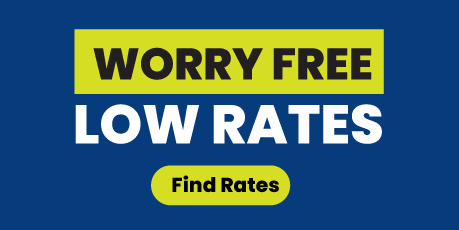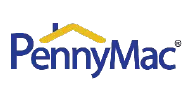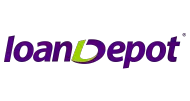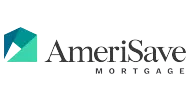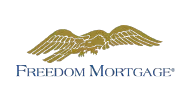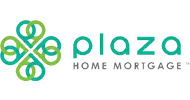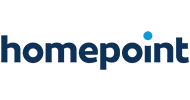What is a Conventional Mortgage Loan?


What is a Conventional Mortgage Loan?
A conventional loan (also known as conforming loan) is a mortgage loan that has normal credit standards and requirements and therefore does not require any additional government insurance, like FHA, VA or USDA loan programs, to the mortgage lender who issues the loan.
Conventional mortgage loans are the most common type of mortgage loans issued issued in today's market.
These conventional mortgage eligibility and approval decisions are determined by uniform underwriting standards issued by both Fannie Mae and Freddie Mac mortgage clearinghouses. Fannie Mae and Freddie Mac are considered quasi government agency enterprises.
They were created by the government in order to help banks raise capital by having an organized location for banks to sell their loans. In short, Fannie Mae and Freddie Mac, are basically a buy and sell mortgage market where lenders can sell their book of loans in exchange for cash, so they can issue more loans.
Unless you are a Veteran or have a credit score below 620, a conventional loan will almost always produce the most savings compared to the Federal Government Insured mortgage loans like FHA, VA and USRDA.
What is conforming loan vs conventional?
There is no difference between the two names conventional and conforming or also sometimes referred to as a traditional mortgage loan. The names are used synonymously to each other.
What is conventional loan mortgage insurance PMI?
All conventional loans require mortgage insurance, that protects the lender in the event of financial loss for the loans they issue when the loan amounts are greater than 80% the value of the homes. PMI stands for private mortgage insurance, meaning its not a government backed mortgage insurance program.
For example, if your home is worth $100,000.00 and your new loan amount is greater than $80,000.00, you will be required to have mortgage insurance on your loan, until the loan balance is 78% the value of your home, or in this case $ 78,000.00.
When there is a requirement to have monthly mortgage insurance (PMI), it will be automatically included in to your new monthly payment.
When does conventional loans mortgage insurance fall off?
Mortgage insurance on conventional loans, PMI, will automatically be removed from your loan when the balance of your loan is less than or equal to 78% the value of your home that was determined when you originally took the loan out.
In other words, even if your home value doubles after taking out this loan, the lender will only remove the monthly mortgage insurance, PMI, when the loan balance is 78% of the last underwritten value assigned by the appraiser on or before your loan closed.
When should I use a conventional Loan?
In general, you should use a conventional mortgage loan, when your credit score is over 620, and on a purchase you have at least 3%, but preferably 5% or more as a down payment.
If you are refinancing and and your credit score is in the 620-640 range, a true mathematical evaluation should be completed to determine if FHA which can offer better interest rates for lower scores compared to conventional would make sense. If your credit score is higher than 640 on a refinance, in most cases you will find a conventional loan as the most affordable loan program.
In the above defined scenario, it would be best to use our automated intelligent loan engine to run the calculations and provide guidance and or suggestions. If you would like to do so, you can APPLY HERE.
** This assumes you are not an eligible Veteran for VA loans.
What is the difference between conventional loans and FHA?
FHA, also known as Federal Housing Administration, mortgage loans have relaxed underwriting and eligibility requirements, and are known to be more forgiving towards past derogatory credit events compared to conventional mortgage loans.
These are government backed loans meaning they are insured by the Federal Government, as an added layer of protection for the mortgage lender. Typically, FHA mortgage loans will cost you more compared to conventional mortgage loans.
However, if you do not qualify for a conventional loan than FHA is an exception mortgage loan program to qualify for.
FHA vs conventional loans. What is better?
To answer this question correctly, there are a few simple scenarios to consider. Choosing FHA or conventional will depends on your credit score, and loan purpose, like purchasing or refinancing the home, and refinancing for cash out. So lets break down each scenario with nice headings so you can jump to the section that applies to you.
Using the annual percentage rate, which is an interest rate figure that represents your interest rate plus the sum of all closing cost refactored into a percentage, is what we use to identify the best deal in our market for you. The other factor to consider in determine best mortgage deal in market is how long you will keep the loan.
Life of loan savings is taken by totaling the sum of all payments made on each type of loan program, and selecting the lower of the two, based upon how long you keep the home. This is specifically true when you have a known exit date for the loan you are considering.
Nonetheless, with the variety of factors to consider when analyzing the best loan for you, we find that hard set intelligent calculations will save you time, and provide a layer of comfort that all factors are considered.
Life of loan savings is taken by totaling the sum of all payments made on each type of loan program, and selecting the lower of the two, based upon how long you keep the home.
Credit Score 620+, purchase, or refinance
If you are purchasing a home and have the min. down payment of 5% (in some cases 3%), and your credit score is greater than 620, then in most all cases conventional loan will provide the lowest cost best rate loan.
If you are refinancing and not taking any cash out of your home, and credit score is greater than 620 then in most all cases conventional loans will provide the lowest interest rates and closing cost.
Credit Score 620-640, cash out refinance
When refinancing your home, and you are taking cash out of the equity of your home and your credit score is between 620-640, in most cases FHA loans will provide you more savings. The reason FHA will prevail as the lowest cost loan in this case is because FHA loans does not increase the interest rate when taking cash out compared to conventional mortgage loans.
Credit Score 580-620, purchase, refi or cash out
When purchasing or refinancing with or without cash out, if your credit scores are below 620, than FHA is the only viable, affordable lending option. Considering past loan programs, FHA is a huge win for consumers with past adverse credit events.
** This assumes you are not an eligible Veteran for VA mortgage loans.
What are the requirements or qualifications for a conventional loan?
The minimum requirements or qualifications for a conventional loan are standard with the majority of all mortgage lenders, because they follow the underwriting guidelines set forth by both Fannie Mae and Freddie Mac. Below is a list of these basic requirements for conventional loan eligibility and loan approval.
- Minimum credit score 620
- No bankruptcy in last 4 years
- No foreclosure in last 7 years
- Monthly income is 2 times greater then monthly bills
- Verify income for last 2 years
Additional requirements may apply; however, this is a general guide to be used for initial basic determination of which loan programs would be best suited to consider if your buying a home and have good credit.
What types of loans programs does conventional offer?
There are several different conventional loan programs which we will highlight here to provide you with a summary of different programs you may be eligible for.
- Standard Conventional Loan Programs: This covers basic purchase, rat term refinance and cash out loan types
- Home Possible Loan Program: Designed for lower income earning households and allows Debt To income (DTI) to exceed 50%. This is offered by Freddie Mac underwriting guidelines.
- Home Ready Loan Program: Same as Home Possible, but this program is offered by Fannie Mae underwriting guidelines.
- Home Style Loan Program: Designed for renovation and repair mortgage loans offered by Fannie Mae.
What type of properties does conventional loans?
Conventional mortgage loans are available for almost all property types that are residential. If buying a home, and intend to use a conventional mortgage loan, then it is important to understand which properties will qualify under conventional loan guidelines issued by Fannie Mae and or Freddie Mac. Here is a list of eligible properties per Fannie Mae and Freddie Mac guidelines.
- Single Family Residence 1 to 4 units
- Duplex
- Condominium
- Townhomes
- Manufactured Homes
What type of rates does conventional loans offer?
Conventional loans offer a variety of interest rate types for both fixed rates and adjustable interest rates. Typically, choosing which interest rate type you would want to select would be based upon how long you intend to keep the loan or home.
In general adjustable rate mortgage loans, offer lower interest rates, because mortgage lenders know that if interest rates rise, the assigned adjustable rate will rise as well. Some adjustable interest rate loans have a fixed period where the interest rate will not adjust.
These ARM (adjustable rate mortgages) with a fixed rate period before the rate adjust are labeled as 5/1 arm, or 7/1, or 10/1 arm meaning for the first 5, 7, or 10 years the interest rate will be fixed, and thereafter, each additional year the rate can be adjusted.
Conventional loan rate types:
- Fixed Rates: 30, 20, 15, 10 year terms
- Adjustable Rate: 5/1 ARM for 30 years
- Adjustable Rate: 7/1 ARM for 30 years
- Adjustable Rate: 10/1 ARM for 30 years
To qualify for an adjustable rate conventional mortgage loan, you must be able to afford the maximum interest rate adjustment assuming the interest rate would increase, as set forth in the debt to income ratios per Fannie Mae and Freddie Mac.
What are conventional conforming loan limits for 2022?
Conventional or conforming loan limits are determined by the government base upon market changes and supply demand. Certain areas qualify for what is considered higher value areas, and therefore have special assigned loan limits determined by the county that the property is located in. The baseline or standard loan amounts for conventional conforming loans on most counties is as follows:
Maximum Baseline Loan Amounts for 2022 are:
- 1 Unit Standard loan limit: $647,200.00
- 2 Unit Standard loan limit: $828,700.00
- 3 Unit Standard loan limit: $1,001,650.00
- 4 Unit Standard loan limit: $1,244,850.00
**Note: For any other loan amount that exceed the above list, in most cases this would be referred to as a Jumbo Loan and therefore, would not be eligible for a standard, or high cost conventional mortgage loan.
What are the conventional conforming high cost loan limits for 2022?
High cost areas are determined by the Federal Government. In general, if the majority of homes in a given county exceed the standard loan limits then that county could be deemed as a high cost area. When the county you live in is determined to be a high cost area, then the following increased maximum loan amounts are as follows:
- 1 Unit High Cost Area loan limit: $647,200.00
- 2 Unit High Cost Area limit: $828,700.00
- 3 Unit High Cost Area limit: $1,001,650.00
- 4 Unit High Cost Area limit: $1,244,850.00
**Note: For any other loan amount that exceed the above list, in most cases this would be referred to as a Jumbo Loan and therefore, would not be eligible for a standard, or high cost conventional mortgage loan.
Summary of conventional loans
In summary, a conventional loan, also known as conforming or traditional mortgage loan, is the most commonly used finance vehicle for the residential housing market. If borrowers have credit scores below 620, or have low 600's credit scores and are seeking cash out, in most cases FHA or if eligible for VA will be the appropriate choice.
Nonetheless, the choice between such a large array of loan programs and rate types is mathematical, and our Digital Mortgage Market Place will provide you with the ability to APPLY NOW, and compare all eligible loan programs to instantly identify the best program for you.

